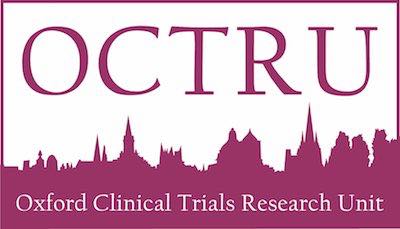What is the purpose of this study?
- This study is looking at how best to treat people who have been diagnosed with early painful phase of frozen shoulder.
- Frozen shoulder is a common condition and can be extremely painful and debilitating, affecting a person’s ability to perform daily tasks and sleep. It occurs when the flexible tissue (capsule) that surrounds the shoulder joint becomes inflamed, thickened and tight.
-
It's not fully understood why frozen shoulder happens but it is more common in people with diabetes or Dupuytren's disease, (a condition which causes the fingers to curl into the palm). It can also occur following shoulder injury or surgery. The pain can be very severe and lasts 3 to 9 months, followed by a 4 to 12 month period of increasing stiffness, after which the condition usually improves.
- Current treatments include rest, painkillers, anti-inflammatories, physiotherapy and steroid injections. If stiffness persists, surgery is sometimes recommended. However, there is no evidence that any of these treatments lead to significant benefit in the long term, with many being ineffective. Steroid injections only help in the short term.
- The aim of this research programme is to test whether an injection of a drug called adalimumab can reduce pain and prevent the disease from getting worse, if given during the early painful phase of frozen shoulder.
- Adalimumab has been used very successfully to treat other inflammatory diseases such as rheumatoid arthritis. This drug has been chosen as the biological processes underlying frozen shoulder are similar to those in Dupuytren’s disease, where we found it helps to stop the cells causing the disease.
- We are conducting this smaller study first to be sure it’s possible to identify and treat people with early stage frozen shoulder within the current NHS system, before we conduct a much larger study to find out how well this treatment works in practice.
Who is taking part?
- We are planning to recruit 84 adults from across at least 5 sites in the UK who have recently been diagnosed with frozen shoulder.
- We are recruiting adults who are over 18 years of age and have a new episode of shoulder pain attributable to the early stage of frozen shoulder (i.e. within approximately 3 months of the onset of your symptoms) and are not being considered for surgery.
What will taking part involve?
- If you are happy to take part in this study, a member of your direct care team will ask you some simple questions and may perform some assessments to confirm that you are eligible for the study. If you are eligible and still want to take part, you will be asked to sign and date a consent form and complete two short questionnaires that asks about you, your health and activity, and your shoulder pain and range of movement. This questionnaire should take you no more than 10 minutes to complete and the whole appointment should last no longer than 30 minutes.
- A researcher will then enter your details into a computer and a computer program will use an algorithm to allocate which group (either the study drug adalimumab or placebo) you will be in whist in the study. This allocation is a 50/50 chance. This is important because it ensures that the different treatment pathways are tested fairly, neither the doctor nor the participant can influence which group the computer puts you into.
- Ideally 2-3 weeks after you have been randomised you will attend hospital for your first injection.
- When you attend hospital for your injection you will need to have a blood test to screen for Tuberculosis (TB) and Hepatitis B (Hep B). Approximately 10ml of blood will be taken, this is the equivalent of 2 teaspoons. If the blood tests detects either of these you will be referred to the local TB or Hep B service for treatment and you will not receive the second injection.
- 2-3 weeks after the first injection you will be asked to attend hospital for another injection (adalimumab/placebo the same as you will be given at the first injection).
- You will be required to attend a follow up appointment 3 months after your last injection where you will be assessed and asked to complete questionnaires similar to the ones completed when you first joined the study.
- You may also be asked to take part in a qualitative sub study, which will involve a member of the research team contacting you and asking you questions about your experience of being in the study.
What treatment will I receive?
|
Treatment A Study Drug injection (adalimumab) |
Treatment B Placebo (dummy) Injection |
|
A second injection of the study drug 2-3 weeks later |
A second placebo injection 2-3 weeks later |
| Follow up at 3 months after the 1st injection | Follow up at 3 months after the 1st injection. |
What happens after I have attended for treatment?
If you take part in the study, you will be invited to attend a follow up appointment with a researcher 3 months after your first injection. At this follow up appointment the physiotherapist will assess how well you are able to move your shoulder and you will also be asked to complete a short questionnaire similar to the one you completed when you first entered the study.




